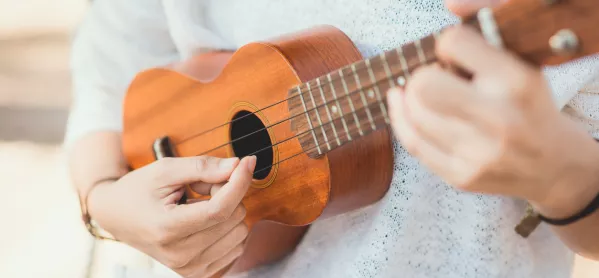- Home
- The power of music to rebuild school communities
The power of music to rebuild school communities

As more students and staff begin to return to schools, all members of school communities will need to “come together” once again.
For many individuals, this will be a nerve-racking time as we adjust to a new “normal”.
Music may have a transformative part to play.
Coronavirus: The importance of music in lockdown
Lockdown has been a tough ordeal for many people, but experiencing lockdown without the arts is unthinkable; people have turned to all kinds of creative outlets in this time to discover, experience, create and connect.
Music, of course, has been one of these outlets.
Projects such as the One World: Together At Home virtual concert showed the impact music can have in our lives, and emphasised the importance of the connections that people form with music and the need for people to come together.
Many similar projects and concerts continue to take place at a more localised level, with online community music groups and choirs becoming meaningful social and cultural hubs.
People are now taking up and showcasing music in their communities in a way that academics once thought was limited to school settings.
A quick browse of social media reveals the volume of positive collaborative musical activities taking place online and within individual households.
Some schools and music departments have already capitalised on this new way of music-making and produced similar pre-recorded performance videos with their staff and students.
Young people, teachers, and parents alike have, therefore, been captivated by this new creative and innovative musical revolution, where the very focus of music is founded upon notions of group and self-identities.
How music can help to reform school and social bonds
Musical activities have always relied on the interconnectedness of individuals and various groups: fellow musicians, audiences, dancers and so on.
As schools seek to facilitate the (re)formation of social bonds between individual students, classes and staff, utilising music as a familiar, safe mechanism could assist students in the transition to a “new normal” of education.
Singing simple songs, tapping basic rhythms to form a class composition or even holding a note as a class for a period of time as a kind of meditative drone are all simple activities that provide therapeutic experiences for students.
These experiences can then be easily shared with students who are not physically present or with parents.
If music teachers can organise and collate recordings and performances of all the musical activities taking place in the school, then the reformed sense of community can be documented and shared.
It is through this metaphorical musical “shop window” that the entire community, both physically and remotely present, can view and experience the school’s reformed visions, values and identities.
Music education at risk
With social distancing likely to be enforced in schools for a considerable period of time, music education itself will encounter serious challenges.
Practices such as students crowding around a piano and the sharing of instruments will have to cease temporarily.
But, as music educators, we must endeavour to continue the ethos of the student-led collaborative learning pedagogies that have increasingly informed the creative delivery of the subject over the past decade
This must be done even if pressure builds to switch back to the appraisal and listening-based model of music education.
There is no reason why students cannot participate in authentic musical experiences at separate desks, or even in separate rooms if the technology allows.
Luckily, the current musical-technological revolution sparked by the national lockdown may allow teachers to finally bridge the gap between “school” music and “home” music, by utilising similar methods of making music in both settings.
In the process of harnessing the power of music as a socially regenerative force to (re)form interpersonal connections within the school community, we must not allow the teaching of music itself to revert to the abstract appraisal-based experience that many educators fear.
This would undermine the transformative effects of the arts during this period of transition.
Callum Bates is a newly qualified music teacher in the East of England
Keep reading for just £1 per month
You've reached your limit of free articles this month. Subscribe for £1 per month for three months and get:
- Unlimited access to all Tes magazine content
- Exclusive subscriber-only stories
- Award-winning email newsletters


